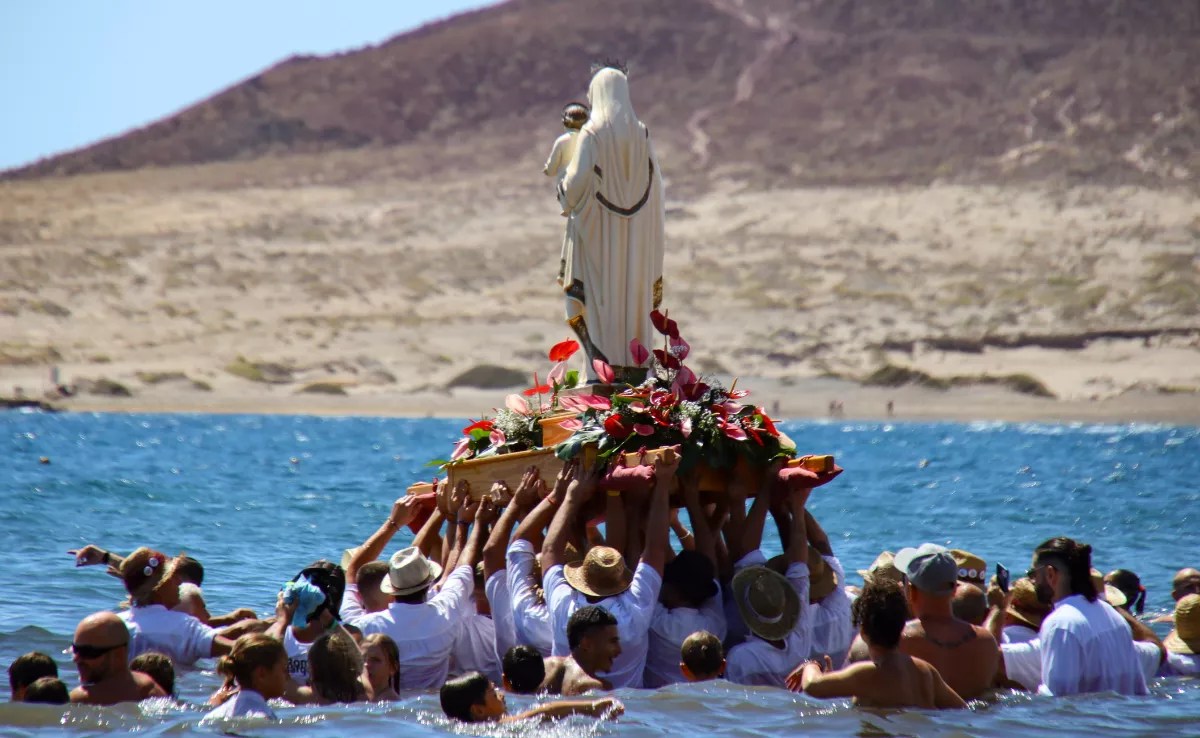
SANTA CRUZ DE TENERIFE, July 22 (EUROPA PRESS) –
Fishermen from the San Miguel de Tajao Brotherhood, in Arico, visited between July 10 and 13 several brotherhoods, producer organizations and fishermen’s associations in Portugal and Galicia affected by the installation of offshore wind power in their fishing areas.
“We are concerned about how it will affect fishing, seabeds, seabirds and the people of Tajao. Our economy is based on fish and the beauty of the coastal landscape,” says the manager of the Brotherhood, Francisco García. “The fishermen tell us that the fish have left the areas where they have put mills and also, they cannot fish in the areas of the mills, they have been expelled from their historical fishing grounds,” he added.
On the coast of Viana do Castelo, in Portugal, three floating wind turbines are installed, similar to those that could be placed in Tenerife. In this case the structures are located 20 kilometers from the coast and are not visible from the beach.
Francisco García points out that in Tenerife the potential space for offshore wind projects is much closer to the coast, starting from 1.65 km from the coast (POEM) and in port waters of the Puerto de Granadilla, just 500 meters from the shore, in another of the proposals. “The impact on the landscape, fishing and marine species is much greater in these cases,” he warns.
“There they only have three mills located very far away and even so there is a significant impact on the fishermen and the area. What will it be like here, when they put more and much closer, as is expected to be done in Tenerife?”, asks the Patron Mayor of the Tajao Brotherhood. “We are full of mills by land, we have more than 100, and now they are going to fill us by sea. They are loading the municipality,” he laments.
The visit to the areas affected by offshore wind projects was carried out by a delegation made up of fishermen, a professor from the University of La Laguna, a biologist and the Tenerife Coastal Action Group.
“Offshore wind projects can create jobs, especially in the construction process, but they can also destroy a lot of jobs forever and that is not being accounted for. Local fishing generates an important, historical and deeply rooted coastal economy, in addition to facilitating food sovereignty,” comments José Pascual, from the University of La Laguna.
“In Tenerife, the environmental impact is an important factor in this type of project, and species and marine dynamics may be affected forever. In regions with such biodiversity, such as the Canary Islands, this type of energy may not be the most appropriate,” says Marta García, a marine biologist.
The Maritime Spatial Planning Plans (POEM) establish potential areas for the development of offshore wind power in Tenerife, Gran Canaria, Lanzarote and Fuerteventura, in a total space of 561 km2. These areas coincide with important local fishing grounds, with tourist areas and spaces of great importance for marine species, many of them protected worldwide.














